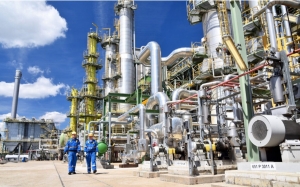


(Posted on 28/03/23)
Fertilizers Europe has called on EU co-legislators to ensure that clean fertilizer and ammonia production continue to be produced in Europe.
Fertilizers Europe represents the interests of the majority of mineral fertilizer manufacturers in the European Union. In a statement they said, “ To keep this key element of food security, the legislators should include low carbon hydrogen in the RFNBOs industry target. Fertilizers Europe represent 80% of mineral fertilizers in Europe and around 90% of ammonia production.
Hydrogen is used to produce ammonia: the main building block of fertilizers. As a result, the Fertilizer Industry is both one of the main users and producers of hydrogen in Europe (40%), around 3 million tonnes per year. Ammonia, which has a higher hydrogen density than hydrogen itself, will be a critical component of any future hydrogen economy, as it will have a role to play not only in fertilizers production but also as shipping fuel or energy storage solutions. Ammonia is one of the first industrial sectors that will need to do a significant shift towards renewable hydrogen. Policy-makers should ensure that this change takes place without risking continuous EU production of this key intermediate.
If no ammonia is produced in Europe, we risk substituting one dependency with another having serious repercussions on food security and strategic autonomy. As one of the sectors most impacted by the new target on RFNBOs use set on industry by the Renewable Energy Directive, we believe that such a target needs to be achievable. A number of conditions must be met to ensure that this target is achieved, foremost of which is access to affordable renewable electricity which unfortunately diverges widely in different Member States, where ammonia is currently produced. Forgetting these differences would be harmful for the European industry. This is why low-carbon hydrogen’s potential for decarbonizing European industry should be fully accounted for, either by including it in RED III target itself or by excluding low-carbon hydrogen from the denominator. This will send a positive signal for the development and production of clean hydrogen while at the same time keeping a binding target for RFNBOs.
We remain ready to engage with the Commission, Parliament and Member States to further discuss this proposal and its benefits for the European food security, clean transportation and the European Union as a whole.”
The National Grain and Feed Association (NGFA) has applauded Senator Deb. Fischer’s (R-Neb.) reintroduction... Read more
Anglo American plc and Teck Resources Limited have received regulatory approval from the Government... Read more
The Rhodes Ridge Joint Venture has approved a $191 million (A$294 million) (Rio Tinto share $96 million... Read more
Trafigura Group Pte Ltd, a global leader in the commodities industry, has announced its financial results... Read more
Rio Tinto has successfully produced the first copper from the Johnson Camp mine in Arizona using its... Read more
The American Soybean Association’s World Initiative for Soy in Human Health programme and the... Read more
Karlka Nyiyaparli Aboriginal Corporation (KNAC) Registered Native Title Body Corporate and Rio Tinto... Read more
OCI Global, a leading global producer and distributor of nitrogen products has announced that it has... Read more
In December 2024, SSAB was granted a permit by the Land and Environment Court at Umeå District... Read more
The President of the Republic of Guinea has joined project partners WCS1, Baowu, Chinalco and Rio Tinto... Read more